Photographs: Akhtar Soomro/Reuters
The leading Islamic seminary, the Darul Uloom Deoband has now issued a fatwa against dyeing dyeing hair black. The seminary says that sharia does not permit anyone, whether male of female, to dye their hair black.
The seminary claims that some dyes on the hair obstruct the water from reaching the roots of the hair during ablution, and make it invalid.
This is not the first time that fatwas -- really a religious opinion proffered to a question asked, and not a suo motu edict -- have been issued. From television viewing to selling firecrackers, many of such diktats have come for sharp criticism.
Let's take a look at recent controversial fatwas.
Click on NEXT to go further...
UN-ISLAMIC: Women receptionists
Image: Employees talk to customers at a call centre. Image used for representational purposes onlyPhotographs: Fayaz Kabli/Reuters
The leading Islamic seminary issued a fatwa against appointment of Muslim women as receptionists, calling it illegal and against Sharia law. The fatwa was issued after a query on November 29 from a Pakistan-based company asking if it could appoint a Muslim woman as a receptionist.
The Darul Uloom said in a statement, "Muslim women working in offices as receptionist is un-Islamic because Muslim women are not allowed to appear before men without veil."
Click on NEXT to go further...
UN-ISLAMIC: Veena Malik
Pakistani actress Veena Malik has often been caught flirting with controversies.
But when she signed up a contract with a channel for her wedding on Indian television, community leaders flared up and wasted no time in issuing a fatwa against her.
"We were getting complaints from concerned community members who said that the activities of this Pakistani female actor were sending a wrong message to our teenagers, especially girls," Ausaf Shahmiri Khurram, chairman of the Majlis-e-Shura was quoted in the media.
"The complaints said that there were offensive photographs of this woman all over the internet and that she was going to have a 'Swayamvar' on television. Islam has a certain procedure for a 'Nikaah' (marriage). We do not have 'Swayamvar'," he added.
Unfazed by the religious decree against her, Veena continues to make headlines -- more recently with her controversial photoshoot for FHM magazine.
Click on NEXT to go further...
UN-ISLAMIC: Manufacturing and Selling Firecrackers
This fatwa really left many a people clueless.
Darul Uloom Deoband issued a fatwa against manufacturing and selling of firecrackers, stating that it was against Sharia law.
Manufacturing and selling of firecrackers is against Sharia law, and bursting of crackers is misuse of money, the fatwa said, adding that men who misuse money are the "brothers of devil."
The fatwa was issued on a query from a man involved in the business of manufacturing firecrackers.
...
UN-ISLAMIC: Blood Donation
According to Darul Uloom Deoband, donation of blood and body parts was against the tenets of Islam. But, ironically, it also observed that giving blood to save the life of a near and dear one was acceptable.
In a 'fatwa' issued in response to a question, the seminary said donating blood or body parts was not permitted in Islam as human beings are not the "owners" of their bodies.
The decree was posted on the website of Darul Uloom's fatwa section dealing with 'haram and halal' issues, where a questioner asked the seminary its opinion on whether taking part in blood donation camps is right or wrong.
However, the opinion of the prominent Islamic seminary did not go down well with several Muslim intellectuals who asserted that religious bodies have already stated that there was no problem with blood donation.
...
UN-ISLAMIC: Jeans, Contraceptives...
This one triggered a dress-code debate across the nation.
According to the fatwa issued by Darul Uloom Deoband, wearing 'skin-tight' dresses is 'not lawful' and that clothes should be 'loose and simple'.
It gave its opinion on the issue when asked by a woman whether wearing "skin tight" trousers and jeans were allowed as per religious beliefs.
Also asked if it was permitted to wear loose pajamas or jeans with a frock that stretches below the knees, accompanied by a head scarf, the scholars again replied in the negative.
In another controversial observation, it said a couple should first seek the opinion of a 'hakim' or Unani practitioner before resorting to use contraceptives if needed for medical reasons.
...
UN-ISLAMIC: Women travelling alone beyond 48 miles
All it took was a query from a female follower and the Darul Uloom Deoband decreed that Muslim women could not travel beyond 48 miles from their homes without being accompanied by a male relative.
The reply on the Deoband website, read: "She cannot travel without a 'mehram' [male relative]. It's mentioned in the Hadees that a woman should not travel for more than 48 miles except in the company of a 'mehram' (male relative)."
The decision was defended by a Deobandi spokesman who said the increase in violent crime against women in India showed it remained relevant. "No Muslim family should have any objections," he said.
Its ruling was based on the Hadiths -- the sayings of the Prophet Muhammad during his lifetime. The 48 mile limit is believed to reflect the maximum distance one could then travel by camel or horse in one day through dangerous desert.
...
UN-ISLAMIC: Watching television
This controversial fatwa by the Islamic seminary tops the list of bizarre decrees.
For clerics at the seminary, watching television is "haram (sinful)". Even watching religious programmes is not acceptable to them.
The Deoband clerics argued that while television "is a tool of entertainment and enjoyment", it was mostly used for "unlawful and prohibited things".
"These matters (watching Islamic channels) are related to religion, so you should see from whom you are taking your religion. You should learn from authentic and pious people," the fatwa said.
Following an uproar over the fatwa, the seminary added a rejoinder -- "It is not compulsory for Muslims to follow it."
...
UN-ISLAMIC: Vande Mataram
Vande Mataram may be the national song, but Deoband clerics view it as against Islam.
The clerics, contending that Vande Mataram meant 'Mother (India), I bow to thee!', said: "Islam teaches us to worship only one god, Allah. We are Indians and there are other ways to express our feelings for the nation rather than bowing before it. Loving your country doesn't only mean worshipping it," Muizuddin said.
"We love our mothers. Islam doesn't even permit bowing before mother. We love the Prophet but we cannot even bow before him."
Maulana Salman, a teacher at the Deoband seminary, was quoted as saying: "We are true Muslims and true Indians. There is no doubt about that. But we no longer remain Muslims when we offer our prayers to anybody else than the Allah. Patriotism is not only about singing songs. We are and will remain Indians without singing Vande Mataram."
Click on NEXT to go further...
UN-ISLAMIC: Birthday Celebrations
The rationale given by the Deoband clerics for issuing this fatwa was that Islam does not permit such a practice which is a "tradition of western countries".
Responding to a query of an AMU student, the fatwa department of the country's biggest Islamic seminary said that Islam does not permit such celebrations as they are against the Shariat law.
"Muslims should not follow the tradition of western culture of celebrating birthdays as it against the Shariat law," Vice-Chancellor of Darul Uloom Deoband, Maulana Abul Kasim Naumani said.
Naumani added that even the Islamic seminary does not celebrate the birth anniversary of Prophet Mohammed, the founder of the religion.
Click on NEXT to go further...
ISLAMIC: Abortion
This fatwa elicited a major thrashing for the clerics from women's rights organisations.
The seminary ruled, "If a holy Muslim doctor advises that a woman is unable to bear birth pangs, then a less than three months old pregnancy can be terminated but if it is more than three months old, the abortion is absolutely unlawful".
The Deoband issued this fatwa in response to the question of a Muslim couple who sought its permission to abort their third child, after a doctor had advised them to wait for at least thirty months before the birth of another child.
Different schools of Muslim law hold different views on whether any other reasons for abortion are permitted, and at what stage of pregnancy if so. Some schools of Muslim law permit abortion in the first 16 weeks of pregnancy, while others only permit it in the first 7 weeks.
However, even those scholars who would permit early abortion in certain cases still regard abortion as wrong, but do not regard it as a punishable wrong. The more advanced the pregnancy, the greater the wrong.
...
ISLAMIC: Talaq on mobile phone
According to this controversial fatwa, the word Talaq uttered thrice by a Muslim on a mobile phone will be considered valid even if his wife is unable to hear it all the three times due to network and other problems.
The Dar-ul-Ifta's fatwa said, "If you have given three talaqs to your wife, all the three took place and she became haram (forbidden) for you. It is not necessary for talaq to take place that the wife hears it or the witnesses are present."
The fatwa said the woman will be free to marry anywhere she likes after her iddat (three month period after divorce) is over.
Prior to this decree, the Islamic seminary had ruled that saying talaq three times even on a humorous note was valid as per the Shariat (Islamic law).
...
UN-ISLAMIC: Insurance
Opting for insurance too is un-Islamic.
The prestigious Sunni Muslim seminary declared that since the calculation of the money pledged in the policy is based on "interest," it was un-Islamic to opt for one.
The edict asked Muslims not go for life insurance policies as 'life' is given by Allah and to insure it or assure it is a crime in the eyes God.
Earlier, Darul Uloom had declared the job of writing and calculating interest based work in banks and insurance companies as unlawful. The fatwa was in response to whether Muslims can do job in bank or insurance company.
The seminary had also decreed that it was illegal, according to the Shariat, for a woman to work and for a family to accept a woman's earnings.
...
UN-ISLAMIC: Working in banks, liquor firms
"It is haram (forbidden) to work in a bank which involves writing interest. Income thus earned will be regarded unlawful. Ask your friend to look for lawful and halal (acceptable) sources of income and leave the bank job," reads the mind-boggling fatwa, displayed on the Deoband seminary's website.
The fatwa was a reply by the 'mufti-e-karam' -- a three-cleric bench -- to a question from a man about a friend whose family refused to accept his salary as it came from sood (interest money). Accepting and paying interest is considered haram in Islam.
Another fatwa displayed on the website said Muslims should only buy or sell shares of a company not "involved in unlawful things like (an association with) an interest-based bank, an insurance company and a wine company".
...
UN-ISLAMIC: Bowing before elders
Bowing before elders, even parents, or touching their feet is un-Islamic as per a fatwa (religious decree) issued by the Darul Ulooom.
The Darul Ifta of Deoband issued the decree saying, "It is unlawful to bow down and touch feet in respect of anyone whether a Muslim or a non-Muslim."
On the ways of giving respect to elders, the online fatwa states: "If one meets an elderly Muslim, one should stand up and greet with salaam, shake hands or hug."
"And if the elderly is non-Muslim, one should say adaab arz, but should not touch their feet," stresses the decree.
Click on NEXT to go further...

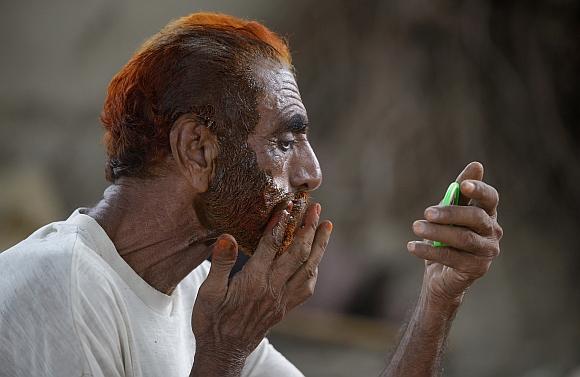
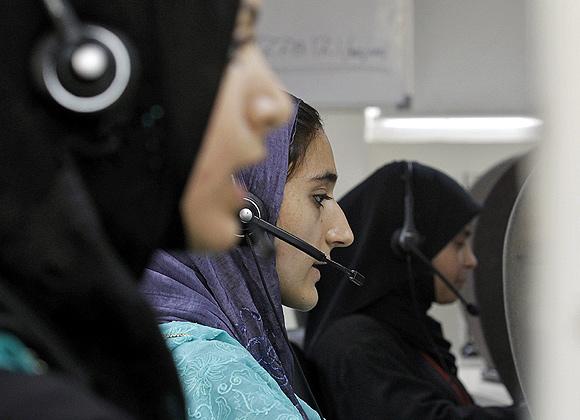

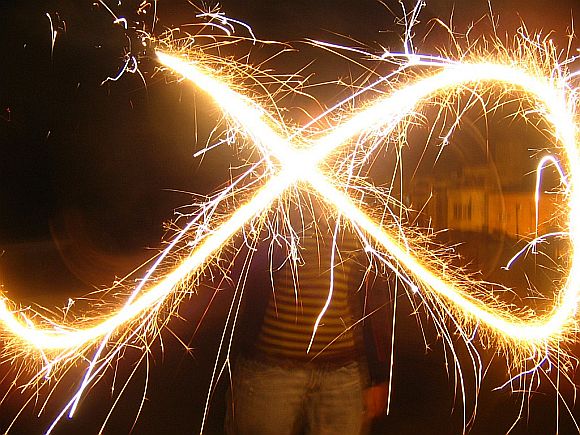

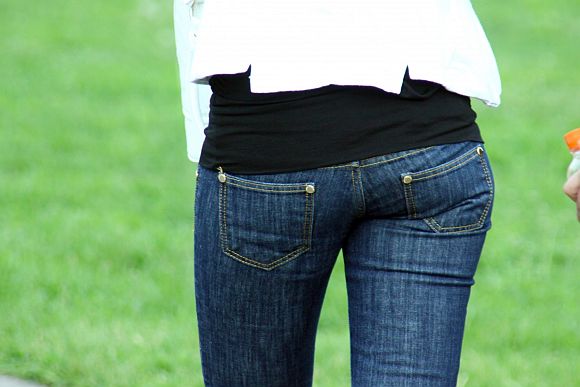
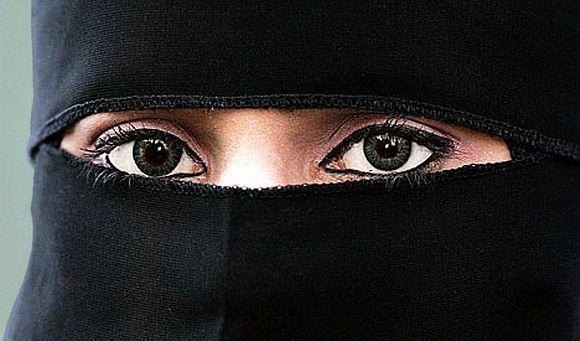
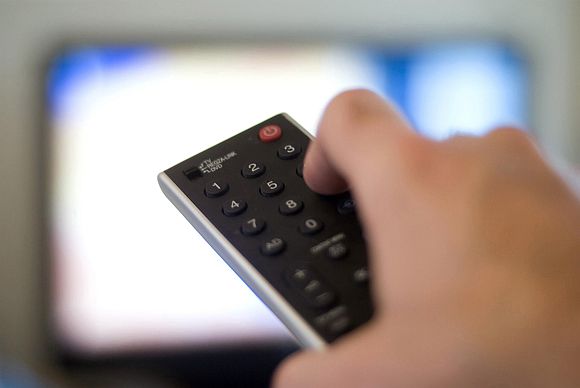
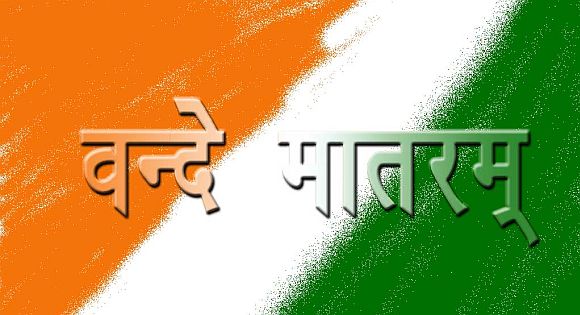


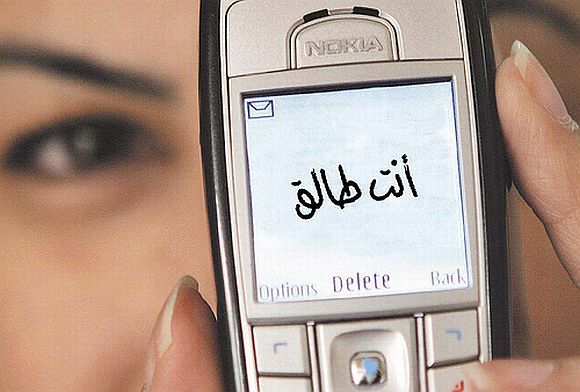

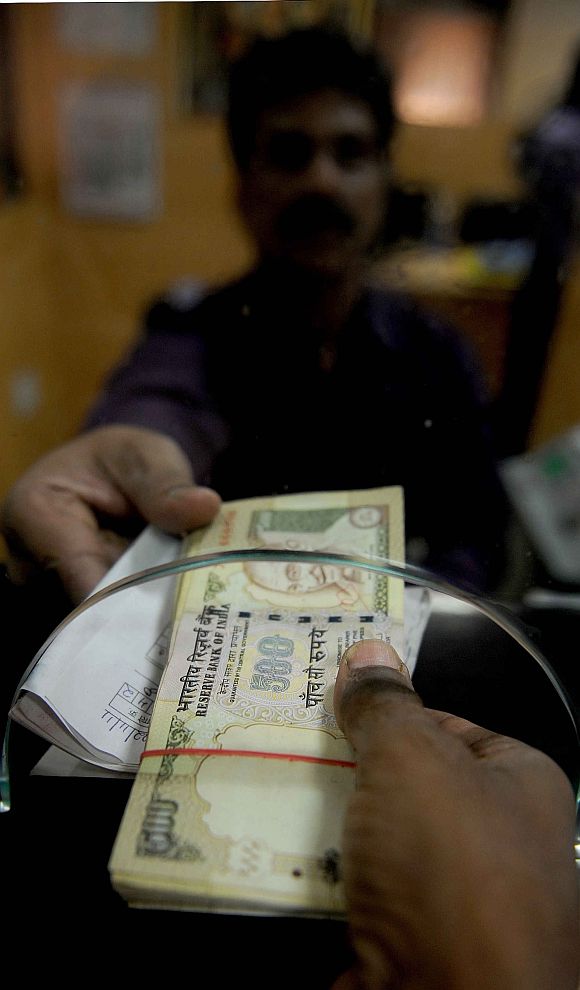
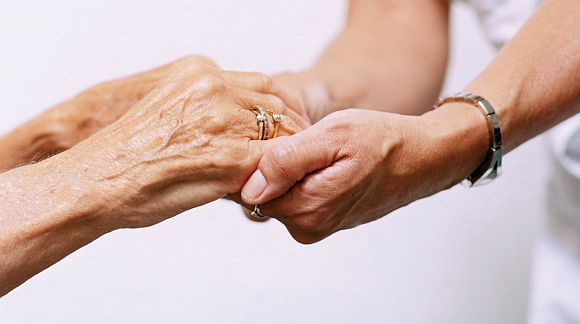
article